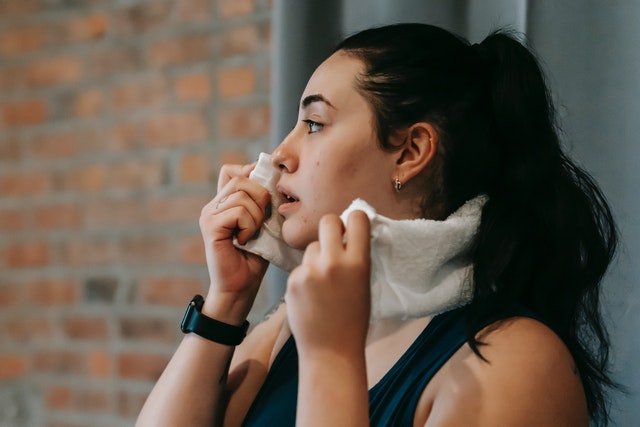After a tough workout, you’re soaking wet—does that suggest you’re burning more calories than usual? It makes sense; excessive sweating indicates that you’re exerting yourself, which necessitates additional energy. Is it true, however, that sweating burns calories? We went to the experts to unpack the science and obtain answers.
What causes sweating?
Let’s start with the reason for perspiring: Sweating is produced by your body to protect you from overheating, not to burn calories. According to Thad E. Wilson, PhD, a professor in the department of physiology at the University of Kentucky College of Medicine, “sweating is the way we cool the body during exercise or other heat stress.”
It’s hard to believe, especially when you’re in the middle of an HIIT workout, but exertion does not cause sweating, according to Wilson. Instead, exercise raises your internal temperature, signaling to your body that it’s time to cool down via sweating.
More sweating does not imply more calories burned
Sweating, on its own, has little effect on how many calories you burn. True, it takes energy to physically transport the ions that allow water to enter into glands and be released as sweat, but only a small amount, according to Wilson. In other words, sweating requires some energy, but not enough to make a significant change in how you feel or how much you weigh. Exercise specialist Gabbi Berkow, a certified personal trainer with an MA in exercise physiology, says that sweat is merely a sign that your body has shed water, not body fat.
Physical exercise burns calories in general. According to Wilson, the more vigorously you engage major muscle groups, the more calories your body burns—and the more heat (and perspiration) your body produces.
When compared to a weight-training activity, this calorie burn is greatest during an aerobic workout. However, if you’re doing a weight or interval workout with rest in between sets, you may discover that you don’t need to towel off as much. “It doesn’t mean you didn’t do a decent workout, burn calories, or gain strength—it just means your body temperature didn’t rise as much,” Berkow explains.
Everyone sweats at their own rate
It doesn’t matter if you’re sweating so profusely that you could sweep the floor while your companion is barely gleaming.
Sweating ability varies a lot from person to person “Wilson agrees. If you’re used to hot temperatures, you’ll probably sweat more at first because your body understands how to cool itself efficiently. At different temperatures, different people begin to sweat.
Takeaway
Measuring calorie burn by how much you sweat is wrong. “Sweating buckets does not always imply a good workout,” Berkow explains. “If you’re sweating profusely, it signifies your body has become overheated from the workout and wants to cool down.” Still not convinced? Here’s an example of an experiment: You’ll likely sweat more if you go for a walk at 2 p.m. in the sun on an unseasonably warm day than if you go for a walk at 2 a.m. in the dark on an uncommonly chilly day—but you’ll burn roughly the same amount of calories.
Monitor your heart rate if you truly want to know how hard or intensely you’re working out. This may necessitate the use of specialized equipment such as a heart rate monitor, health tracker, or app. If those options aren’t available, Berkow recommends using the Rate of Perceived Exertion (RPE) scale. All you have to do is use a 1-10 scale to judge how difficult the workout is. You won’t have exact figures, but you’ll be able to compare exercises and get a sense of when you’re taking it easy and when you’re going all out.










